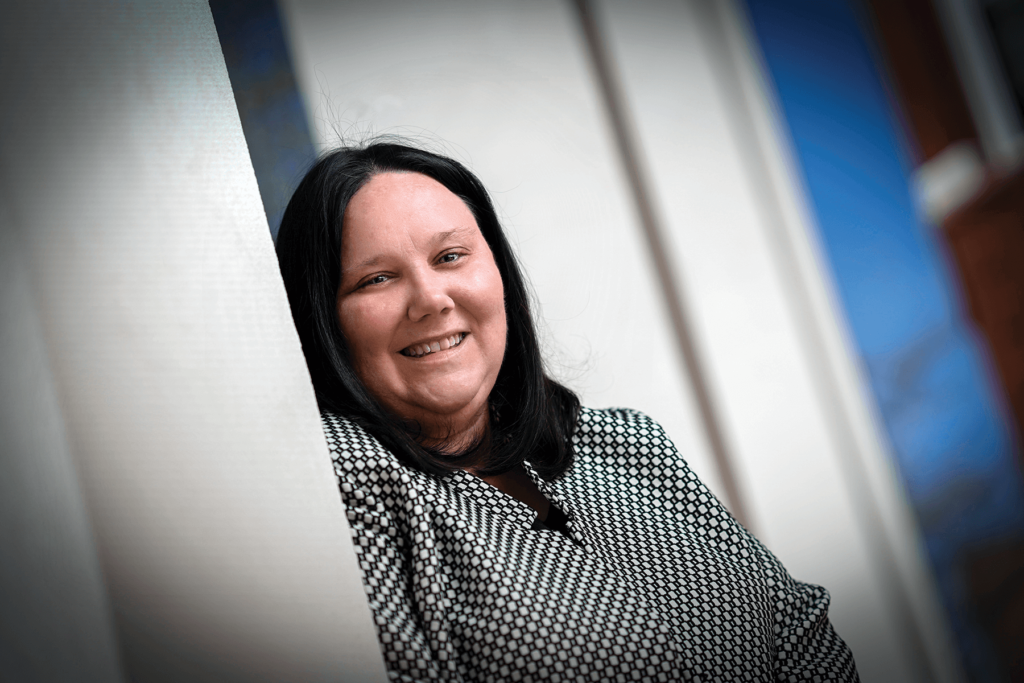For Rachel M. Moses (’02), her life’s work is a calling.
As a staff attorney with the Legal Aid Society of Middle Tennessee and the Cumberlands, she gives voice to the underrepresented and provides hope to those who face injustice.
In this installment of our series of interviews featuring our alumni who work in public interest law, Moses describes why hers is work that matters.
Describe the work you do and what a day on the job might involve.
I represent low-income individuals from 10 counties in the Upper Cumberland region of middle Tennessee with a variety of civil legal problems, such as obtaining divorces and Orders of Protection for victims of domestic violence, representing children with disabilities in special education matters, protecting consumers’ rights in debt collection cases or asserting protections under the Consumer Protection Act, handling administrative agency appeals regarding public benefits like TennCare (Medicaid), Food Stamps, Families First (TANF), and Social Security, and assisting taxpayers in both administrative and court actions against the IRS in Federal income tax controversies. I often must travel among the counties multiple days per week for Court to conduct agency hearings or to meet clients who do not have the ability to travel to my office. When I am in my office, I have frequent meetings with clients and phone calls to opposing parties/attorneys and spend much time drafting pleadings and correspondence. I participate in many conference calls per month with other Legal Aid attorneys within my firm and across the state who practice the same types of cases as I do.
Why have you made advocacy such an important part of your legal career?
First, I truly believe it was my calling to be a voice for people who would not have one if it weren’t for me. There are so many injustices that happen every day, especially to low-income individuals, and it is professionally and personally rewarding to be able to bring attention to and attempt to correct as many of those injustices through advocacy.
Second, I love being challenged, and despite practicing for 16 years in the same firm and in the same communities, my work as an advocate always keeps me on my toes because of new legal issues and new factual scenarios that always pop up. Every time I think I have seen it all, a new client comes in with a whole new issue that requires new analysis.
What are some of the frustrations that come with this work?
You don’t always win when you think you should. Also, the laws don’t always make sense, especially to our clients. So sometimes it can be frustrating to explain to a client why they don’t have a good legal case. It’s also hard to say no to cases, and sometimes you can get too many cases at the same time which makes it hard to balance life and work.
What are some of the rewards that come with this work?
As stated above, correcting injustices is the most rewarding as well as empowering a client who felt like they had no power or no chance before they came to you.
If you could talk to law students who are considering a similar career path, what would you tell them about your work in advocacy and what advice would you give them?
I feel lucky to be a legal aid attorney because I wake up every day knowing my goal is to help someone, or many someones, who have no one else to help them. It’s rewarding, inspiring, and fulfilling, even when it’s frustrating. You’re not going to get financially rich by being a legal aid attorney so you must make some sacrifices if you truly want to work for a nonprofit. And starting to practice as an attorney with any type of firm will be hard because you quickly realize what you did not learn about practicing as an attorney. Try to take as many trial practice classes as possible in law school. And get involved in as many clinical experiences as you can, through the clinics offered at the law school, the UT Pro Bono projects, and through any available internships you can find in the summer, so you can hopefully gain some experience in the courtroom.
This is the fourth in a series of interviews originally published in the May 2019 issue of Tennessee Law.
